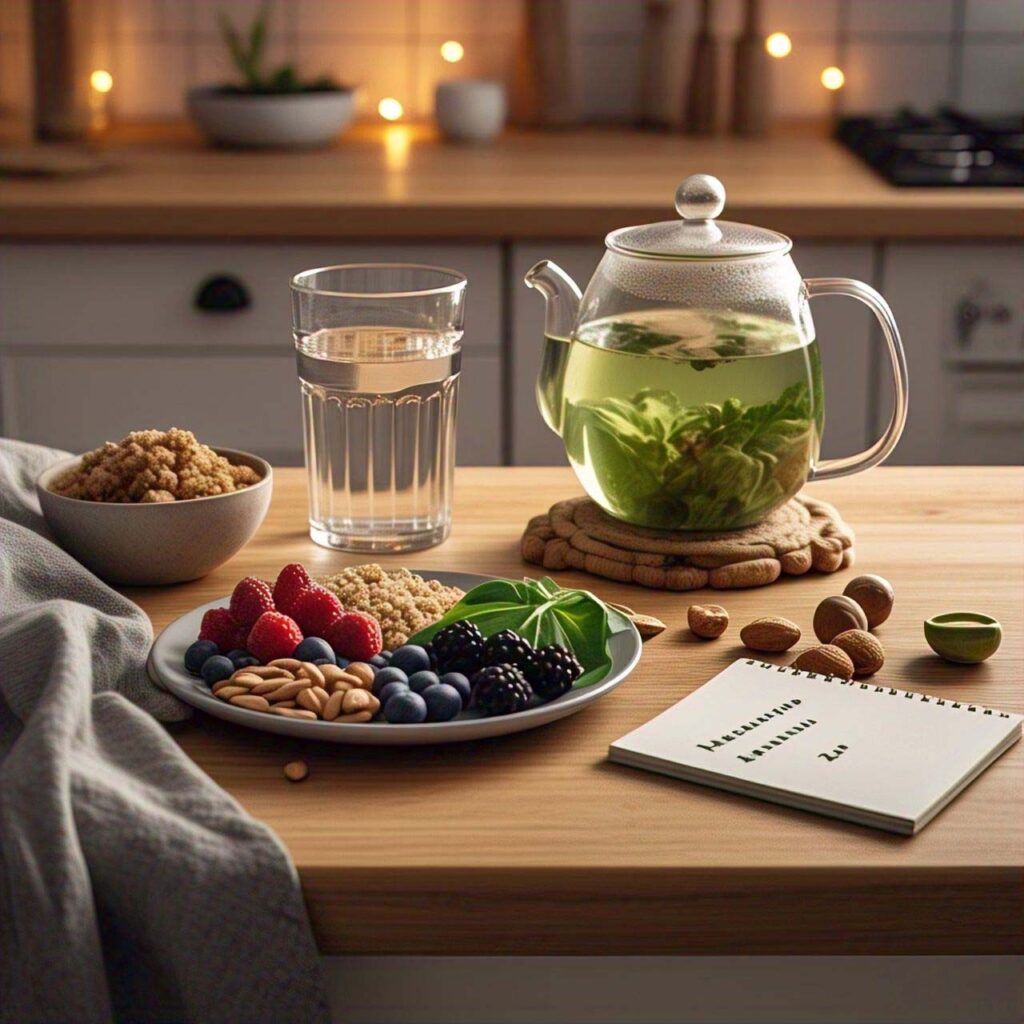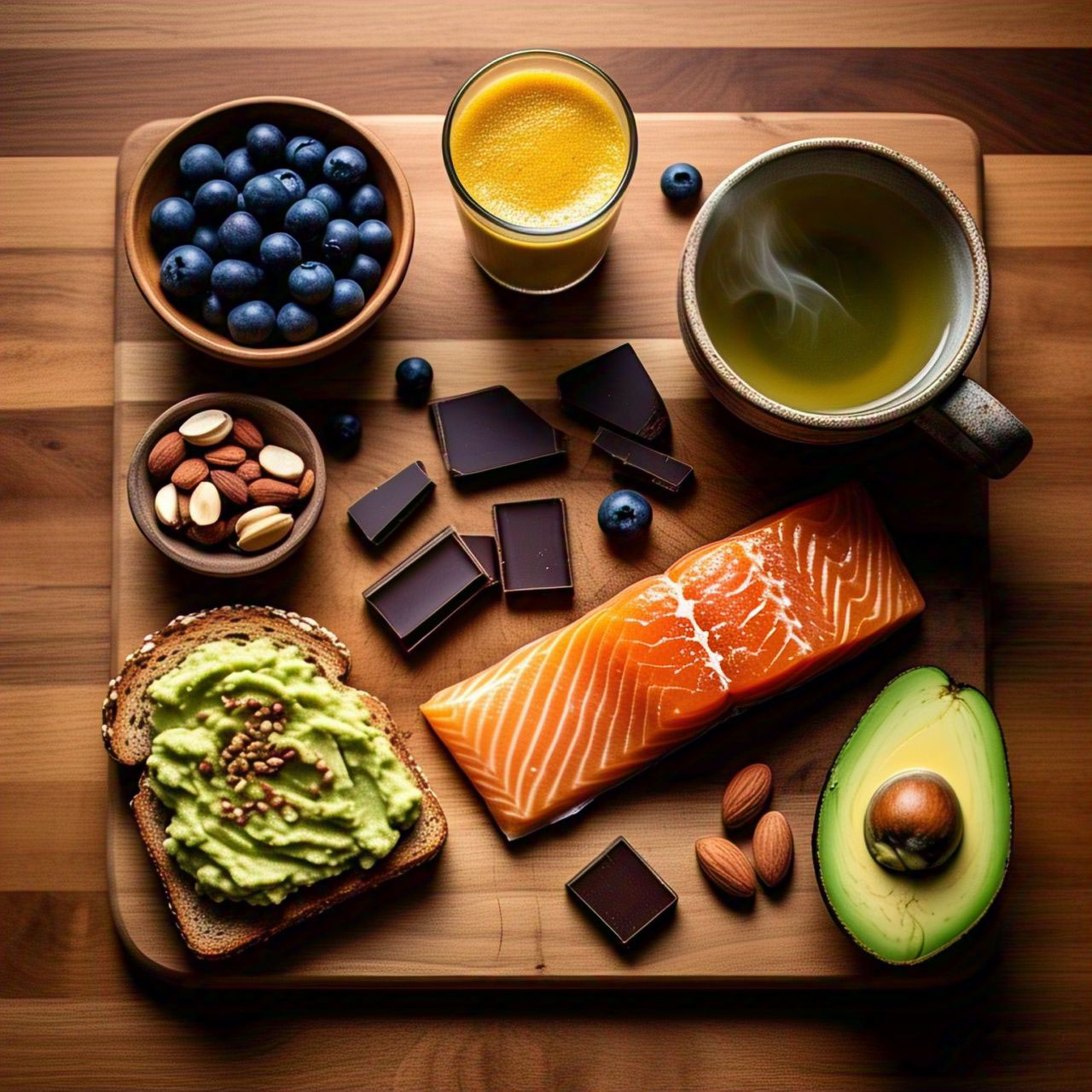Anxiety and stress have become common issues in today’s fast-paced world. While various factors contribute to mental well-being, diet plays a crucial role in managing stress levels. Certain foods can help reduce anxiety by influencing brain chemistry, lowering inflammation, and stabilizing blood sugar levels. In this comprehensive guide, we explore the best foods to eat for reducing anxiety and stress, along with practical tips to incorporate them into your daily routine.
How Diet Affects Anxiety and Stress
The brain and gut are closely connected, often referred to as the gut-brain axis. The food we consume directly affects our mood, cognitive function, and stress levels. Nutrients such as omega-3 fatty acids, antioxidants, vitamins, and minerals play essential roles in neurotransmitter function and brain health. A well-balanced diet can help regulate cortisol (the stress hormone) and increase the production of serotonin and dopamine, which promote relaxation and happiness.
Stress Statistics And Facts In 2025 : Stress Statistics And Facts In 2025 – Forbes Health

Best Foods to Reduce Anxiety and Stress
1. Fatty Fish (Salmon, Mackerel, Sardines)
Fatty fish are rich in omega-3 fatty acids, particularly EPA and DHA, which help reduce inflammation and support brain function. Studies show that omega-3s can lower anxiety and stress by reducing cortisol levels and improving serotonin production.
How to Include:
- Eat grilled salmon with vegetables.
- Add sardines to salads or sandwiches.
- Take omega-3 supplements if you don’t eat fish regularly.
2. Dark Chocolate
Dark chocolate is packed with antioxidants and flavonoids, which help improve brain function and reduce stress hormones. Additionally, it contains magnesium, a mineral that promotes relaxation and mood stability.
How to Include:
- Eat a small piece (70% or higher cacao) as a treat.
- Mix cocoa powder into smoothies or oatmeal.
- Make homemade dark chocolate granola bars.
3. Nuts and Seeds (Almonds, Walnuts, Pumpkin Seeds, Chia Seeds)
Nuts and seeds are excellent sources of magnesium, healthy fats, and tryptophan, which help in serotonin production. Magnesium deficiency is linked to increased anxiety and stress.
How to Include:
- Snack on a handful of mixed nuts.
- Add chia seeds to yogurt or smoothies.
- Use almond butter on toast or in baking recipes.
4. Fermented Foods (Yogurt, Kimchi, Sauerkraut, Kefir)
Fermented foods contain probiotics, which support gut health. Since gut bacteria influence neurotransmitter production, a healthy gut microbiome can reduce symptoms of anxiety and stress.
How to Include:
- Eat plain yogurt with fruits and nuts.
- Include kimchi or sauerkraut as a side dish.
- Drink kefir as a probiotic-rich beverage.
5. Green Leafy Vegetables (Spinach, Kale, Swiss Chard)
These vegetables are rich in magnesium, folate, and antioxidants, which help reduce inflammation and support brain function.
How to Include:
- Make green smoothies.
- Add spinach to omelets or soups.
- Use kale in salads or as a side dish.
6. Berries (Blueberries, Strawberries, Blackberries, Raspberries)
Berries are packed with antioxidants, vitamin C, and flavonoids, which help fight oxidative stress and inflammation in the brain.
How to Include:
- Add berries to yogurt or oatmeal.
- Blend them into smoothies.
- Eat as a fresh snack.
7. Turmeric
Curcumin, the active ingredient in turmeric, has powerful anti-inflammatory and antioxidant properties that support brain health and reduce anxiety.
How to Include:
- Add turmeric to soups, curries, and stews.
- Make a turmeric latte (golden milk).
- Take turmeric supplements.
8. Green Tea
Green tea contains L-theanine, an amino acid that promotes relaxation and reduces stress without causing drowsiness.
How to Include:
- Drink 2-3 cups of green tea daily.
- Use matcha powder in lattes or smoothies.
- Sip on iced green tea during hot weather.
9. Oats and Whole Grains
Whole grains like oats, quinoa, and brown rice provide complex carbohydrates, which help maintain steady blood sugar levels and promote serotonin production.
How to Include:
- Eat oatmeal for breakfast.
- Use whole grains in salads or as a side dish.
- Make homemade granola bars.
10. Avocados
Avocados are rich in healthy fats, B vitamins, and potassium, which help support nerve function and regulate stress hormones.
How to Include:
- Make avocado toast.
- Add to salads or smoothies.
- Use as a topping for sandwiches.

Additional Tips for Managing Anxiety Through Diet
1. Stay Hydrated
Dehydration can worsen anxiety and lead to irritability. Drink at least 8-10 glasses of water daily.
2. Limit Caffeine and Alcohol
Excess caffeine can trigger anxiety, while alcohol can disrupt sleep and mood stability.
3. Eat Small, Frequent Meals
Skipping meals can lead to low blood sugar, which increases irritability and stress.
4. Reduce Processed Foods and Sugar
High-sugar foods cause energy crashes and mood swings, worsening stress.
5. Practice Mindful Eating
Slow down and enjoy your meals. Avoid distractions while eating to enhance digestion and satisfaction.
6. Exercise Regularly
Physical activity releases endorphins, which improve mood and reduce stress.
7. Get Enough Sleep
Lack of sleep can worsen anxiety, so aim for 7-9 hours per night.
8. Practice Deep Breathing and Meditation
Mindfulness techniques help regulate stress hormones and improve mental clarity.
9. Socialize and Stay Connected
Building strong relationships and spending time with loved ones can provide emotional support and reduce stress.
10. Try Aromatherapy and Herbal Teas
Essential oils such as lavender, chamomile, and peppermint can promote relaxation. Drinking herbal teas like chamomile and valerian root can also help ease stress.
Conclusion
Incorporating these stress-reducing foods into your daily diet can have a profound impact on your mental well-being. While diet alone cannot cure anxiety, it plays a vital role in supporting brain health and improving overall mood. A balanced diet, combined with regular exercise, adequate sleep, and stress-management techniques, can help maintain a calm and healthy mind.
By making mindful food choices, you can take a natural approach to reducing anxiety and stress. Start incorporating these foods into your meals today and experience the benefits of eating for mental wellness!





